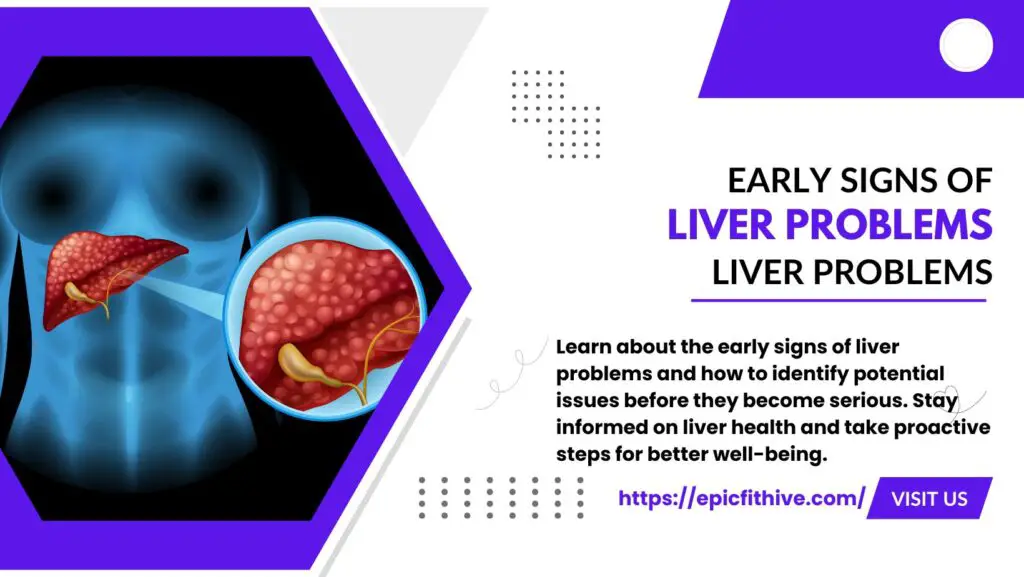5 Early Signs of Liver Problems in Females
Your liver is your body’s silent warrior. It detoxifies, stores nutrients, helps in digestion, and keeps everything running smoothly. But what happens when it begins to fail—quietly, slowly, without shouting for help? Unfortunately, signs of liver problems in females often go unnoticed until it’s too late. Women, in particular, may experience unique symptoms due to hormonal differences and biological factors. That’s why recognizing these early signs can be lifesaving. And yes—there’s something very important at the end of this post that every woman should know. Let’s dive in. 1. Unexplained Fatigue and Weakness We all get tired. That’s life. But if you’re constantly feeling drained, even after a good night’s sleep, your liver might be waving a red flag. The liver plays a key role in energy production. When it’s not functioning properly, toxins build up in the blood, leaving you feeling exhausted and foggy. Real-Life Story:Take the case of Sandra Morales, a 39-year-old schoolteacher from El Paso, Texas. She began experiencing constant tiredness and brain fog. Her doctor initially chalked it up to stress. It wasn’t until she pushed for deeper testing that they discovered her liver enzyme levels were elevated. She was diagnosed with early-stage non-alcoholic fatty liver disease (NAFLD)—a condition that’s rising in women, especially after menopause. This was one of the first signs of liver problems in females that saved Sandra’s life. Pro Tip: If you feel tired without explanation for weeks or months, especially paired with other symptoms, it’s time to talk to your doctor. 2. Sudden Abdominal Swelling or Pain Another classic and alarming sign is abdominal discomfort—especially in the upper right side, where your liver lives. Some women also notice their belly getting bigger without gaining weight. Why does this happen? When the liver is inflamed or has scarring (fibrosis), it can retain fluid in the abdomen—a condition known as ascites. True Story Example:Angela Reed, a 42-year-old chef from Seattle, was preparing meals for others every day, but her own health was silently declining. She thought her bloating was just “a bad diet” or stress. But when her jeans stopped fitting and her upper belly became sensitive, she finally went for a check-up. An ultrasound revealed early-stage cirrhosis. Angela had ignored one of the clearest signs of liver problems in females—until it almost became fatal. 3. Changes in Skin or Eye Color (Jaundice) This one’s hard to miss. If your skin or the whites of your eyes start turning yellow, you might be dealing with jaundice. It happens when the liver can’t properly filter out bilirubin, a yellow pigment produced when old red blood cells are broken down. Why This Matters for Women:Hormonal imbalances and even birth control pills can put extra strain on the liver, making women more prone to developing jaundice in certain liver conditions. Meet Jennifer Liu, a 29-year-old content creator in NYC. After coming back from vacation, she noticed her eyes had a yellow tint. She thought it was due to “bad lighting” at first. When she posted a makeup tutorial on YouTube, her fans commented about the odd yellow hue in her eyes. Alarmed, she went to her doctor. The diagnosis? Autoimmune hepatitis—an underdiagnosed liver condition that disproportionately affects women. One of the boldest signs of liver problems in females stared Jennifer right in the mirror. 4. Irregular Menstrual Cycles and Hormonal Imbalances This might surprise you—but your liver has a direct relationship with your hormones. It helps regulate estrogen levels. When it’s not functioning right, estrogen builds up in the body, leading to menstrual irregularities, mood swings, and even fertility issues. True Case:Lana Benson, a 34-year-old marketing executive from Chicago, experienced missed periods and intense PMS symptoms. Her gynecologist found nothing wrong hormonally. But a liver panel showed impaired liver function due to years of unknowingly having hepatitis C—likely contracted from a tattoo session in college. This was one of those lesser-known signs of liver problems in females that snuck in like a ninja. 5. Unexplained Itchy Skin and Bruising Easily An odd but tell-tale sign is chronic itching—especially without a rash. When bile ducts are blocked, bile salts can accumulate under the skin, causing intense itching, especially at night. You may also find bruises appearing from light bumps—because the liver helps with blood clotting. True Story:Martha Gill, a 48-year-old nurse from Boston, began noticing random bruises and constant itching, particularly on her arms and legs. She dismissed it as dry skin or aging. But it turned out to be Primary Biliary Cholangitis (PBC), a chronic liver disease common in middle-aged women. Martha had chalked it up to everyday things—but these were significant signs of liver problems in females. Why Are Liver Problems Often Missed in Women? Here’s a truth bomb: Many healthcare providers associate liver problems with alcohol or drug use. Since women statistically drink less, their symptoms are often misdiagnosed or minimized. Add in hormonal variations, pregnancy, menopause, and the use of medications like birth control—and you’ve got a complicated picture. That’s why it’s so important to recognize the subtle signs of liver problems in females and not just accept fatigue, bloating, or mood swings as “normal female stuff.” Risk Factors That Make Women More Vulnerable If you’re wondering whether you should be concerned, here are key risk factors: Even if none apply, staying liver-aware is still crucial. Early detection changes lives. What To Do If You Suspect Liver Problems If you’re experiencing any of the signs of liver problems in females, here’s what you should do immediately: FAQs on Signs of Liver Problems in Females Q: Can liver problems affect your menstrual cycle?Yes! Hormonal imbalances caused by liver issues can lead to irregular periods or even missed cycles. Q: Are signs of liver problems in females different from males?They can be. Women may experience more hormonal-related symptoms, and autoimmune liver diseases are more common in females. Q: How can I prevent liver issues if I’m healthy now?Eat clean, exercise, manage stress, avoid unnecessary meds, and get regular check-ups. Your liver is resilient but

